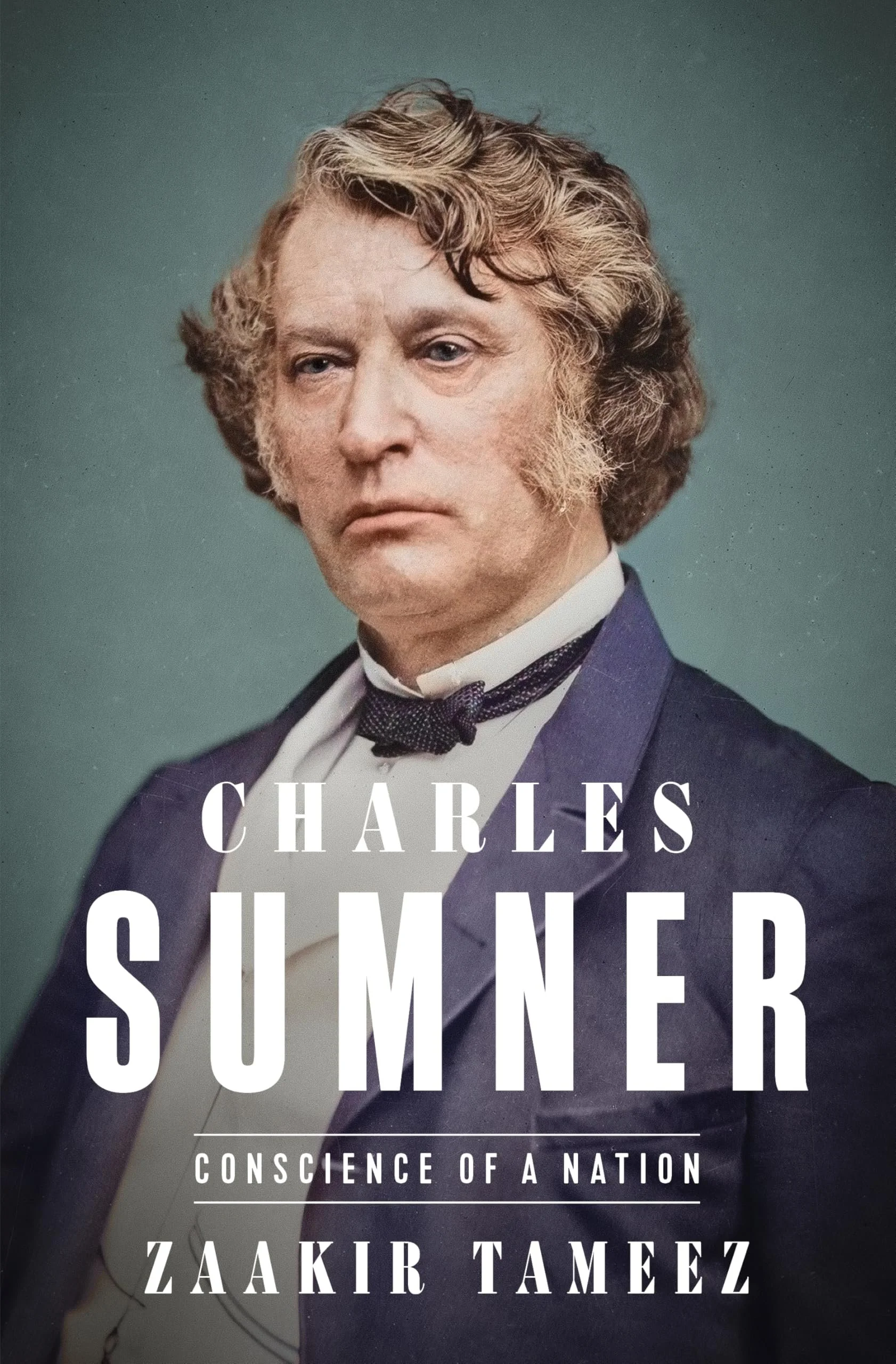The American Civil War & Reconstruction
Whistlestop Bookshop’s first store opened in Gettysburg in 1985. Eventually, over 19 years there, our Civil War section grew to be three large wall cases. A disproportionate percentage of it, naturally, was about the battle of Gettysburg and biographies of those who fought there. In addition to this book selling experience, my southern upbringing and Army family life created a lifelong interest in the War Between the States and all of its complexities. It is an understandable national obsession, considering how the first half of our nation’s history contributed to its ferocity, and the second half of our history has been the struggle to live with and understand the consequences.
Charles Sumner: Conscience of a Nation
Charles Sumner: Conscience of a Nation
A landmark biography of Charles Sumner, the unsung hero of the American Civil War and Reconstruction
Charles Sumner is mainly known as the abolitionist statesman who suffered a brutal caning on the Senate floor by the proslavery congressman Preston Brooks in 1856. This violent episode has obscured Sumner’s status as the most passionate champion of equal rights and multiracial democracy of his time. A friend of Alexis de Tocqueville, an ally of Frederick Douglass, and an adviser to Abraham Lincoln, Sumner helped the Union win the Civil War and ordain the Emancipation Proclamation, the Thirteenth Amendment, the Freedmen’s Bureau, and the Civil Rights Act of 1875.
In a comprehensive but fast-paced narrative, Zaakir Tameez presents Sumner as one of America’s forgotten founding fathers, a constitutional visionary who helped to rewrite the post–Civil War Constitution and give birth to modern civil rights law. He argues that Sumner was a gay man who battled with love and heartbreak at a time when homosexuality wasn’t well understood or accepted. And he explores Sumner’s critical partnerships with the nation’s first generation of Black lawyers and civil rights leaders, whose legal contributions to Reconstruction have been overlooked for far too long.
An extraordinary achievement of historical and constitutional scholarship, Charles Sumner brings back to life one of America’s most inspiring statesmen, whose formidable ideas remain relevant to a nation still divided over questions of race, democracy, and constitutional law.

